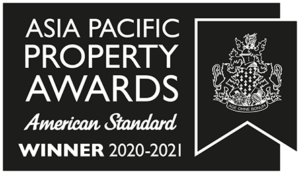Comprehensive Guide to Obtaining a Mortgage in Hong Kong: Understanding LTV, HIBOR, and Application Processes
This guide provides an overview of the mortgage application process, including the maximum Loan-to-Value (LTV) ratio offered by banks, the roles of indicative and formal valuations, the function and influence of the HIBOR interest rate, the Debt Servicing Ratio (DSR), and how Jade Land Properties can support you in achieving your dream home.
Disclaimer: This guide provides general information about obtaining a mortgage in Hong Kong and is not financial or legal advice. Mortgage terms, interest rates, and regulations may vary by bank and change over time. For personalized advice, consult a licensed financial advisor, mortgage broker, or legal professional. Jade Land Properties can assist with property selection and mortgage coordination but is not responsible for loan outcomes or financial decisions.
Step-by-Step Guide to Obtaining a Mortgage
- Select a Property: Choose based on budget, location, and property age. Older buildings (50+ years) may have shorter loan tenors (75/80 minus building age), impacting monthly payments and DSR affordability. Obtain an indicative valuation through bank tools, mortgage brokers, or recent sales data (comparables) to estimate the property’s market value. Jade Land Properties can provide expert guidance and comparable sales data to align your choice with financing goals, particularly for special units.
- Sign Provisional Agreement (PASP): Agree on a price and pay a 5% deposit upon signing the PASP. This binding agreement triggers the mortgage process and formal bank valuation.
- Apply for Mortgage: Submit documents (ID, income proof, PASP, bank statements) to banks or brokers. Applications take 1–2 weeks, with online pre-approvals offering indicative LTV estimates based on preliminary valuations. Jade Land Properties can assist in coordinating your mortgage application for a seamless process.
- Bank Assessment and Valuation: Banks evaluate your income, credit, and DSR (percentage of income used for debt repayments, capped at 50%). A formal valuation by an independent surveyor determines the property’s market value, setting the LTV. The interest rate stress test is suspended, but DSR compliance is key.
- Receive Approval: If approved, receive a mortgage offer with terms (LTV, tenor, interest rate). Sign the Formal Sale and Purchase Agreement and pay a further 5% deposit.
- Complete Transaction: On completion (1–3 months after PASP), the bank releases funds via your solicitor, and repayments begin.
What is Loan-to-Value (LTV) Ratio?
LTV is the percentage of the property’s value the bank will lend, calculated as (Loan Amount / Property Value) x 100, using the lower of purchase price or bank valuation. For a HK$5M property at 70% LTV, you borrow HK$3.5M, needing a HK$1.5M down payment.
What is the Maximum Loan-To-Value Allowed?
The maximum LTV ratios for residential properties, effective for provisional Sale and Purchase (S&P) agreements on or after September 22, 2023, are as follows:
| Property Value# | Maximum LTV Ratio# |
| Up to HK$10 million | 80% or 90%* |
| Above HK$10 million and below HK$11.25 million |
80% or 90%* (subject to a loan cap of HK$9 million) |
| At or above HK$11.25 million and up to HK$15 million |
80% |
| Above HK$15 million and up to HK$17.15 million |
70% – 80% (subject to a loan cap of HK$12 million) |
| Above HK$17.15 million and up to HK$30 million** |
70% |
|
*Only applicable to application with (i) all mortgagors not holding any residential properties in Hong Kong at the time of application and (ii) all applicants being regular salaried persons (please refer to the relevant Insurance Eligibility Criteria)
**Only applicable for provisonal agreements for sale and purchase before 16 October 2024 |
|
How Banks Assess LTV
Banks determine LTV through:
- Indicative Valuation (Pre-PASP): Before signing the PASP, buyers can get an indicative valuation via bank online tools, mortgage brokers, or comparable sales data (e.g., from Land Registry or agents). This non-binding estimate ensures the asking price reflects market trends.
- Formal Property Valuation (Post-PASP): After PASP, independent appraisers assess market value based on recent sales, location, condition, and age. Banks may match the PASP price (subject to bank approval) for unique properties like penthouses. Jade Land Properties can provide supporting data to highlight the value of these properties to banks, maximizing your loan potential.
- HKMA Max LTV Range: First-time buyers can secure up to 90% LTV for self-occupied properties valued up to HK$10M, 80-90% for HK$10M-HK$11.25M (capped at HK$9M loan), 80% for HK$11.25M-HK$15M, and 70-80% for HK$15M-HK$17.15M (capped at HK$12M loan). Properties above HK$17.15M are limited to 70% LTV.
- Risk Factors: Older buildings (50+ years) may require additional valuation considerations.
- DSR Compliance: Total debt repayments must be ≤50% of monthly income, indirectly affecting LTV approval.
Interest Rate Options: Floating-Rate HIBOR and Fixed-Rate Mortgages
- Floating-Rate Mortgages based on HIBOR (Hong Kong Interbank Offered Rate): The rate at which banks lend to each other, used for floating-rate mortgages (e.g., HIBOR + 1.5%). If HIBOR is 2%, the mortgage rate might be 3.5%. These loans adjust with market conditions, affecting payments. Most HIBOR-based mortgages include an interest rate cap based on the Prime Rate (P), typically set at a fixed level (e.g., P-2.5%). The effective interest rate is the lower of the HIBOR-based rate or the Prime Rate cap.
- Fixed-Rate Mortgages: A newer offering since 2023, these lock in a rate (e.g., 3.5–4% for 1–10 years) for stable payments, reverting to a floating rate afterward. Typically, the fixed-rate mortgages have higher rates compared to floating-rate mortgages.
- Market Preference: Most borrowers (~70–80%) choose floating-rate mortgages (HIBOR or prime-based) due to lower initial rates (e.g., 2.5–3.5% vs. 3.5–4% for fixed), market familiarity, and flexibility. Fixed-rate loans are preferred by risk-averse buyers or those needing payment stability.
What is Debt Servicing Ratio (DSR)?
The Debt Servicing Ratio (DSR) measures the percentage of a borrower’s monthly income used for debt repayments, including the mortgage and other loans (e.g., credit cards). It’s calculated as (Total Monthly Debt Repayments / Monthly Income) x 100, with a HKMA cap of 50% to ensure affordability. For example, a client with HK$50,000 monthly income and HK$20,000 in debt repayments has a DSR of 40%, passing the threshold. Rental income (70–80%) can boost income for investment properties, improving DSR.
Factors Affecting Mortgage Approval
- Property Type: The Loan-to-Value (LTV) ratio varies by property value. Refer to the table above.
- Borrower Profile: Stable income, good credit, and younger age improve LTV and DSR compliance.
- Property Age: Younger buildings allow longer tenors (75/80 minus building age), reducing payments and aiding DSR. Older properties (50+ years) have shorter tenors (15–25 years), increasing payments.
- Tenancy: Purchasing a property with an existing tenancy agreement may reduce LTV.
Tips for Success
- Get Indicative Valuation and Pre-Approval: Use bank tools, comps, or brokers to estimate value and confirm budget before PASP. Unique properties like penthouses with private rooftops or terraces often command premium prices due to their exclusivity. For special units like penthouses with private rooftops or terraces, valuations may be lower than market value due to limited comparable transactions, as these units are rare and their premium features (e.g., 10–30% higher price) are harder to quantify. Jade Land Properties can provide detailed market analysis and comps to align your purchase with financing potential.
- Optimize DSR: Document all income (e.g. salary) to meet the 50% DSR cap. Choose younger properties for lower payments. Jade Land Properties can advise on properties that enhance DSR compliance.
- Budget Costs: Include stamp duties (up to 15%), legal fees (HK$10,000+), and commissions. Prepare for potential valuation differences, common for unique properties, by having cash reserves.
- Choose Younger Properties: Opt for properties with longer tenors and stronger comps for smoother financing and valuations closer to PASP.
- Work with Jade Land Properties: Contact Jade Land Properties to assist with selecting premium properties like penthouses, providing market insights, and coordinating mortgage applications for a seamless home-buying experience tailored to your financial goals.
Ready to start your homeownership journey in Hong Kong?
Contact our team at Jade Land Properties today for personalized assistance or to explore exclusive listings tailored to your Hong Kong homeownership goals.



